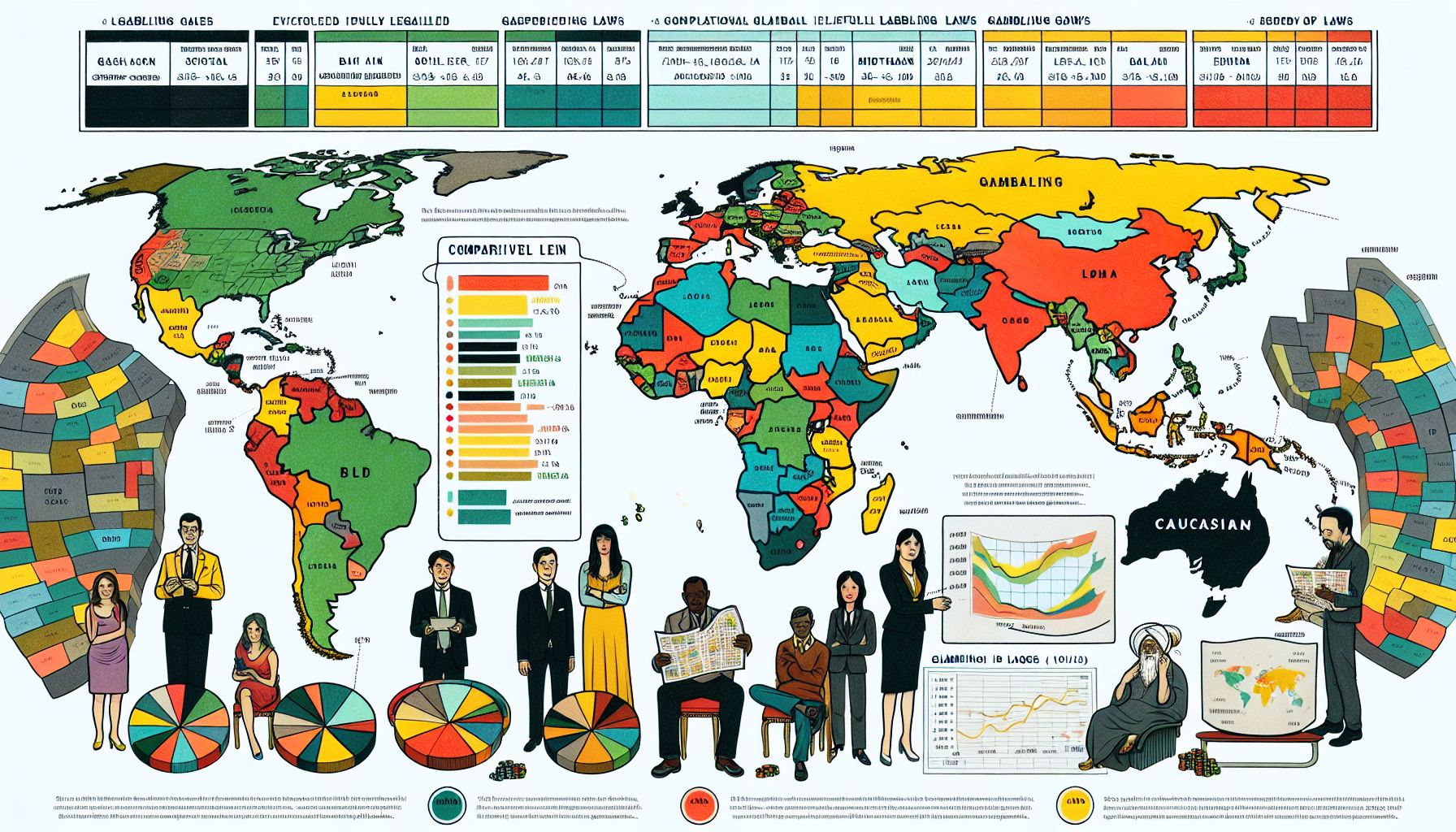Gambling Laws has been a part of human history for centuries, with evidence of early forms of gambling dating back to ancient civilizations.As with any activity that involves the potential to win or lose money, there is always a need for regulations and laws to ensure fairness and protect both the players and operators.
The History of Gambling Laws
Gambling laws have evolved over time, but they have always been heavily influenced by cultural and religious beliefs. The earliest recorded laws around gambling can be traced back to ancient Rome, where gambling was only allowed during certain religious festivals. In medieval Europe, the Catholic Church had a significant influence on gambling laws, with the church forbidding gambling activities for many years. However, it wasn’t until the 20th century that gambling started to take shape in their modern form.
The Different Types of Gambling Laws
Before we dive into the specific laws in various countries, it’s essential to understand the different forms of Gambling Laws. Gambling can be broadly categorized into four types: commercial, tribal, lotteries, and social gambling.
Commercial gambling: This type of gambling includes activities such as casinos, horse and dog racing, sports betting, and even online gambling. These forms of gambling are usually operated by private companies and are heavily regulated by the government.
Tribal gambling: Native American tribes in the United States have the right to operate gambling activities on their land. This is regulated under the Indian Gaming Regulatory Act, and the profits from these activities go towards the tribes’ community development.
Lotteries: Lotteries are a form of gambling where players purchase tickets with a chance to win a prize. State or national lotteries are usually operated by the government and are heavily regulated.
Social gambling: This type of gambling includes activities such as card games played among friends or charity raffles. These activities are subject to specific laws and regulations, depending on the country’s jurisdiction.
Now, let’s take a closer look at how gambling is regulated in different countries.
United States
In the United States, gambling laws are mainly governed at the state level, with each state having its own set of regulations. Only two states, Hawaii and Utah, have a blanket ban on all forms of gambling. For the rest of the country, gambling laws vary significantly. Some states, such as Nevada, have a more relaxed approach, with gambling activities such as casinos and sports betting being legal. Other states, like Alabama, have strict laws that only allow for bingo and charitable gambling.
United Kingdom
The United Kingdom has one of the most liberal and well-regulated gambling environments in the world. The primary governing body is the UK Gambling Commission, which oversees all gambling activities in the country, including casinos, sports betting, and lotteries. The UK has a long history of gambling, and it is deeply ingrained in the country’s culture.
China
Gambling is heavily restricted in China, with only a few state-run lotteries being legal. Other forms of gambling, such as casinos and sports betting, are illegal. Even with these restrictions, illegal gambling and underground casinos are prevalent in the country. The Chinese government has been cracking down on these activities, with harsh penalties for those involved.
Australia
In Australia, gambling is a significant part of the culture, with nearly 80% of the population participating in some form of gambling. The government heavily regulates all forms of gambling, with a particular focus on minimizing harm to players. The Interactive Gambling Act of 2001 prohibits online gambling activities, but players can still participate in online sports betting and lottery activities.
Japan
The gambling scene in Japan is still relatively small, but it is rapidly growing following the legalization of casinos in 2018. Before that, gambling was mainly restricted to government-operated lotteries and a few horse racing and motor race tracks.
Germany
In Germany, gambling is permitted under strict regulations, with a focus on protecting players and ensuring fairness. Land-based casinos are allowed, alongside state-run lotteries, sports betting, and horse racing. However, online gambling, with the exception of sports betting, remains prohibited.
Conclusion
As we can see, gambling laws and regulations vary significantly from country to country, with each one taking a unique approach to manage the industry. While some countries have liberal and well-regulated environments, others have strict restrictions, and gambling activities may be considered illegal. The cultural and religious beliefs of a country often play a significant role in shaping their gambling laws. It will be interesting to see how these laws and regulations continue to evolve in the future.
